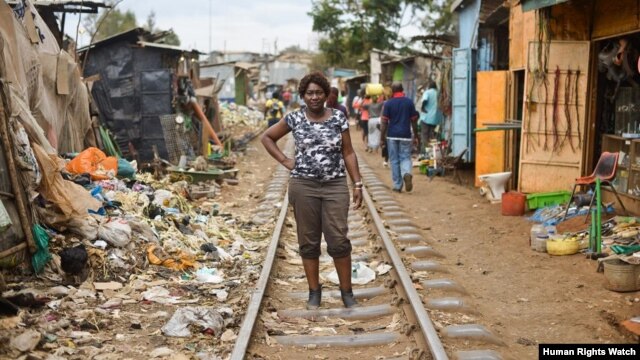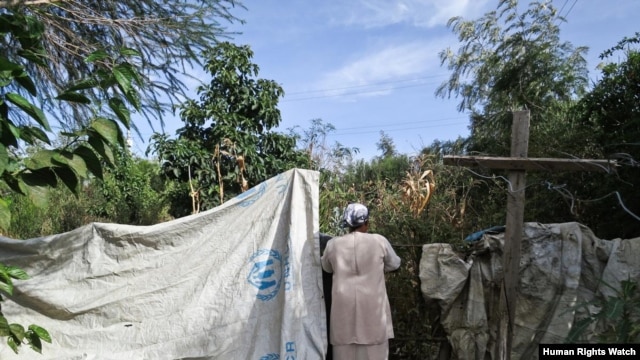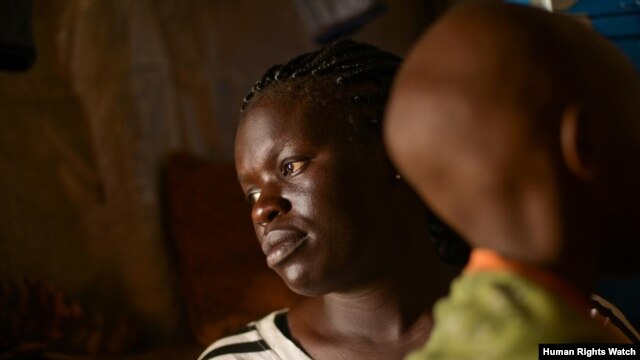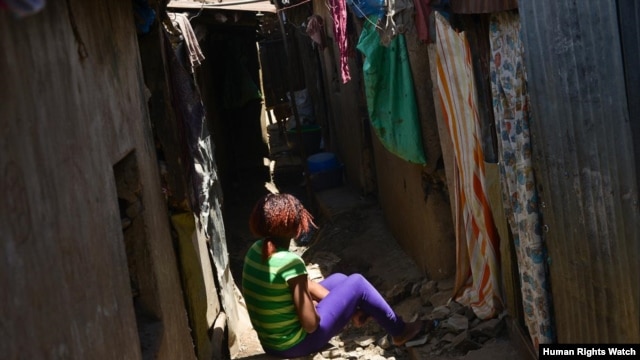Date: Tue, 16 Feb 2016 14:11:09 +0100

February 16, 2016 8:31 AM
Hundreds of women and girls still bear the physical and mental scars of sexual violence following Kenya's post-election turmoil in 2007 and 2008. A new Human Rights Watch report released Monday says the government has not helped them.
Human Rights Watch said some 900 women and girls were victims of sexual violence during the post-election period and many cases likely were unreported.
The group said lack of medical attention left many survivors unable to work or pursue an education, and therefore they remain stuck in poverty.
Jacqueline Mutere is a rape survivor who alleges she was attacked by her neighbor’s friend who entered her house by force, saying he was seeking refuge from the violence outside.
“I realized that he did not have very noble intentions, because we started pushing and shoving, he started making advances at me, and I refused them,” Mutere said. “I had my small kids in the room, in the house, they were sleeping, and I wasn’t going to accept his advances, especially with brute force, no way, no way. So he became violent, extremely violent. Slapped me around a few times, actually. He burst my eardrum.”
Physical, mental harm
HRW’s Agnes Odhiambo is senior researcher for women’s rights in Africa and interviewed survivors for the report.
“Women have a lot of injuries, back injuries, leg injuries, chest injuries, because the rapes were just so brutal,” said Odhiambo. “They included kicking women, slapping them, cutting them with machetes, pulling legs apart...”
Odhiambo said victims also suffered mentally.
“Women were talking about having sleepless nights, not being able to concentrate at work because they keep thinking about the rape, and let’s not forget that these women were not just raped, they were also affected just like other victims of the post-election violence by losing their homes, losing their loved ones – husbands, children – in the violence,” said Odhiambo.
Stigmatized
According to Odhiambo, many victims were gang-raped by anywhere from four to at least 10 men, at times in front of family members, including young children, and were stigmatized by their husbands and communities. Some women contracted sexually transmitted diseases, became pregnant, or both.
Because abortion is illegal in Kenya, even in rape cases, some women obtained so-called “back street” or "back alley" abortions that left them with severe internal damage. Those who carried their pregnancies to term faced additional abuse and discrimination, as did their children.
“Mothers were talking about not having been able to secure birth certificates for the children because when they went to their registration offices, they were required to produce the name of the father,” said Odhiambo. “Now, these women, they don’t know what is the name of the father, this was a rape. Many of them were gang rapes.”
When women reported their rapes, they were often told to find their perpetrator and bring him to the police or were accused of lying for political reasons.
The report also states that police officers and members of the paramilitary police unit known as the GSU were themselves responsible for ‘a lot of’ the attacks.
“So a woman would tell you, ‘one police officer was standing at the door of my house, as the other one was raping me and then they kept taking turns,” said Odhiambo.
The government has acknowledged rapes occurred during that period, but has not offered assistance to the victims. Human Rights Watch is urging the government to use its "restorative justice" fund of about $9.8 million, announced last March, to help survivors, especially those urgently needing medical and psycho-social services.


